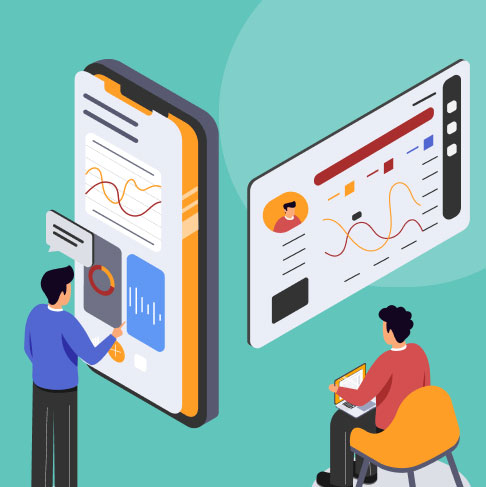10 Principles of Great Digital Product Design
February 1, 2023 | Read Time : 3 mins
“Good design is unobtrusive and restrained, to leave room for the user’s self-expression.” — H.C. Deiter Rams, German Industrial Designer”
Famous German industrial designer Deiter Rams’ aesthetic was firmly rooted in the “less is more” school of thought. He believed in functionalism, an architectural theory that states that structures should be constructed with a specific purpose.
His 1950s-era work continues to significantly influence all forms of design today, including digital and physical product design and architecture.
Here are Rams’ well-known “10 Principles of Good Design” and our modern interpretation of these time-tested principles for digital product design.
Innovative Design
Innovative design is true, but user-centered design comes first. User experience comes first, then cutting-edge technology. We cannot succeed if we build a product for innovation without considering the customer experience. Our main priority should always be experience design. To support that, technology should be employed.
Usefulness
Always maintain an intuitive and simple user interface for your product. Social media platforms have grown significantly because of their user interfaces, which even someone who hardly knew how to operate a smartphone could use without help. These mobile applications both have excellent user interfaces that make it simple to generate shareable content by being useful.
Aesthetically pleasing
A product’s effectiveness depends on its visual appeal since daily products impact our identity and well-being. However, beautiful things can only be created with quality. Even digital products have a look and feel and should evoke passion and delight while avoiding interfering with or distracting from usage.
Product should be easily understandable
Make the product speak for itself. It can, at most, be self-explanatory. Instructions are not necessary to be beneficial. Intuitively, people understand it. The interface, experience, and iconography all function as indicators.
Design is unobtrusive
Products that have a function are similar to tools. They are neither art pieces nor ornamental objects. As a result, its design should be fair and constrained so that the user may express themselves. Don’t design your product based on your expectations or desires for your users. Create a product that gets out of the user’s way and allows them to accomplish what they want while leading them toward an enjoyable and efficient method of doing it.
Honesty
Good design doesn’t transform into something more inventive, powerful, or useful than it is. It doesn’t make empty promises to the customer to trick them.
Long-lasting experiences
Good user experiences need to last, but in today’s rapidly evolving world of new platforms, gadgets, and channels, you need to be quick to adapt when a platform or channel changes and take into account how the environment or usage of that platform differs from that of other platforms.
Design is through the last detail
There must be no uncertainty or chance involved. Care and precision demonstrate respect for the consumer in the design process. We must have a complete understanding and empathy for our users. With an iterative mindset, we can produce designs that customers genuinely adore.
Environment-friendly
Design plays a significant role in preserving the environment. Throughout the product’s life, it minimizes physical and visible pollution while conserving resources.
It is our duty as a creator of digital products to create items that operate on small devices and use less power since smaller devices have smaller batteries and fewer materials.
Less is better
Less is preferable since it focuses on the essentials and avoids the product of unnecessary features, back to simplicity and quality.
These principles are essential in building digital products, but it’s also perhaps the most difficult step to take, especially if you’re not the sole decision-maker. Committee-produced products typically have extensive, multi-page feature lists. One of the main causes of digital products going over budget and drifting off course is this.
We constantly promote simplicity and flexibility. Start small, and iterate as frequently as you can. This will inspire you to eliminate everything unnecessary for the user experience. Work wiser rather than harder.






